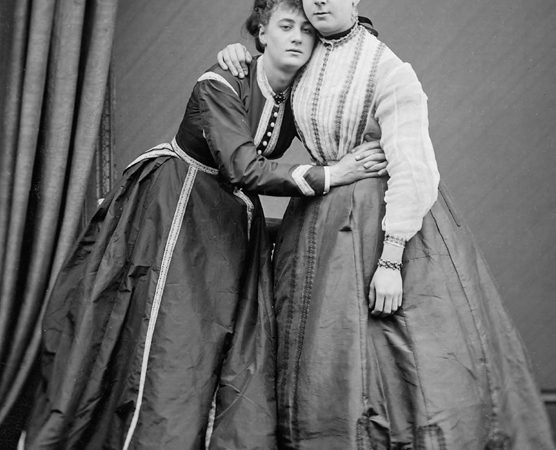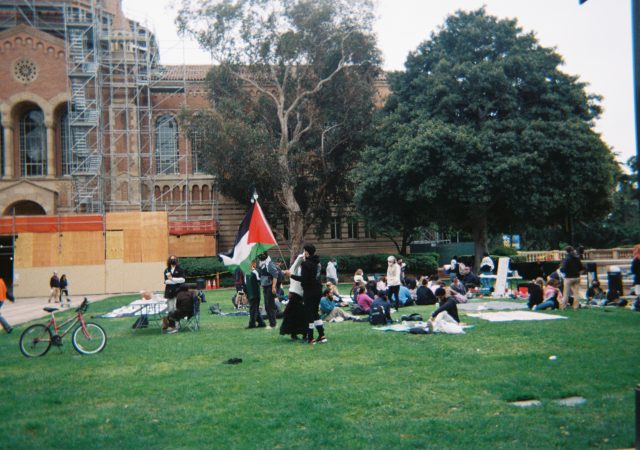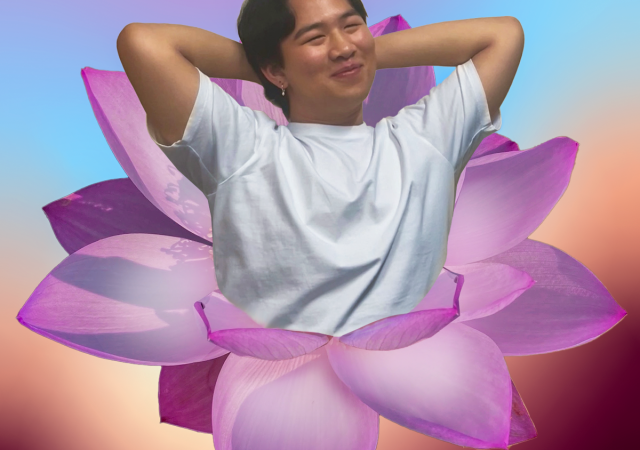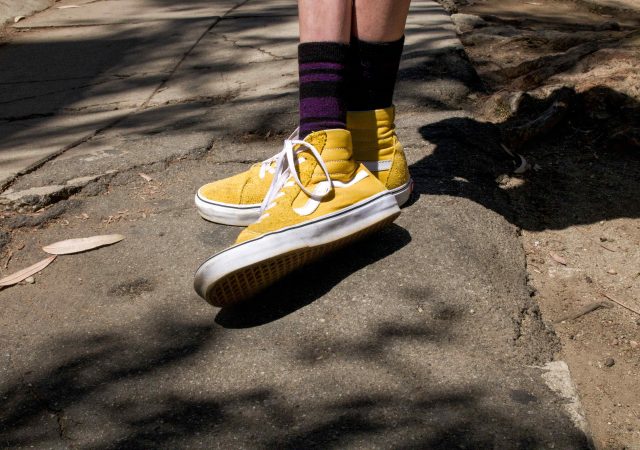I first witnessed a transgender character misgendered by her own author in “The Man Who Thought Himself a Woman,” a short story published anonymously in 1857. The text was assigned for a queer short stories course at UCLA, and while I wasn’t surprised that a transgender character was misgendered by a writer in 1857, I was surprised that a professor of queer studies in 2023 would as well.
“Poetry Is Not a Luxury”: Building New Queer Worlds One Word at a Time
Audre Lorde asks us to view life as something to be experienced, not a problem to solve — to view our feelings as cherished sources of power and knowledge instead of treasures to bury deep inside. Our poetry and dreams unlock those wells of power that can lead to true lasting action.
The Right to be Disruptive
The act of protest is one of risk. The university’s justification for sweeping the encampment on the basis of being disruptive overlooks the fact that the disruption was intentional. On May 2 — the night that police forcibly destroyed the encampment — 210 arrested individuals were given a chance to walk away, but didn’t. They chose to remain because this act of resistance is the greatest power they have as students and civilians to affect this cause.
Hometown Troubles
Chino Hills, California is known for its outdoor shopping malls, its competitive secondary schools, and the fact that NBA basketball players the Ball brothers once lived on its green and always-clean streets. In more recent years, my hometown has also become known for the discriminatory legislation and public prejudice of its ultraconservative school board council.
Why Queer Education Matters
In March of 2022, Florida legislature passed House Bill 1557: “Parental Rights in Education” Bill, also informally referred to as the “Don’t Say Gay” Bill. Signed into law in July of the same year, the bill was proposed as a way to strengthen a parent’s right to make decisions about the type of care and education a student receives in public school. Crucially, this bill prohibits the education of sexual orientation and gender identity in classrooms before fourth grade, after which it has to be taught in an “age-appropriate or developmentally-appropriate” way.
“Maybe We Got Lost in Translation?”: The Fraught Relationship Between the Church, Sexuality, and the Bible
I remember the Catholic guilt gnawing at my insides when I thought about her, when I felt butterflies flutter in my heart as I glanced at her. I remember teachers in religion classes making it clear where the Church stood on someone like me. I remember hearing about the Bible verses — the dreaded Leviticus 18:22 — and reading about sodomy in the Catechism of the Catholic Church. I remember looking up to the sky, thinking, “If this is true, why would you make me this way?”
Why I Hesitate to Introduce Myself With Pronouns
I know who I am. I know what inspires me, what ticks me off, and what I love. I know why I believe the things I do, who I want to be, and how I navigate the world. My ears are pierced (twice), I wear cool shoes, and I have never felt more myself than I do now.
Gay Wrongs, and Why I Support Them — On “Bottoms” and Queer Irreverence
Lesbians have never looked as hot as when they are covered in the blood of football jocks like the characters of “Bottoms,” the instant classic lesbian rom-com movie of the year. “Bottoms” — directed by Emma Seligman — follows Josie (Ayo Edebiri) and PJ’s (Rachel Sennott) attempt to woo their respective love interests, Isabel (Havana Rose Liu) and Brittany (Kaia Gerber), with a faux all-women’s self-defense fight club. The film screams of a dark humor and irreverence rarely seen in LGBTQ+ media — a refreshing new take that presents audiences with queer, gray morality, or what I lovingly call ‘Gay Wrongs’.
A Trip in Westwood
UCLA made me disabled.
Don’t get me wrong, I’ve been ill my whole life. I was diagnosed with Marfan Syndrome at 18 months old, a rare genetic disorder that makes my connective tissue more elastic and prone to spontaneous breakage. I hear from every medical professional I see that I am a textbook marfanoid; there was even a photo of 6-year-old me on The Marfan Foundation’s “Signs & Symptoms” page for a decade. I am a literal poster child for my condition.













